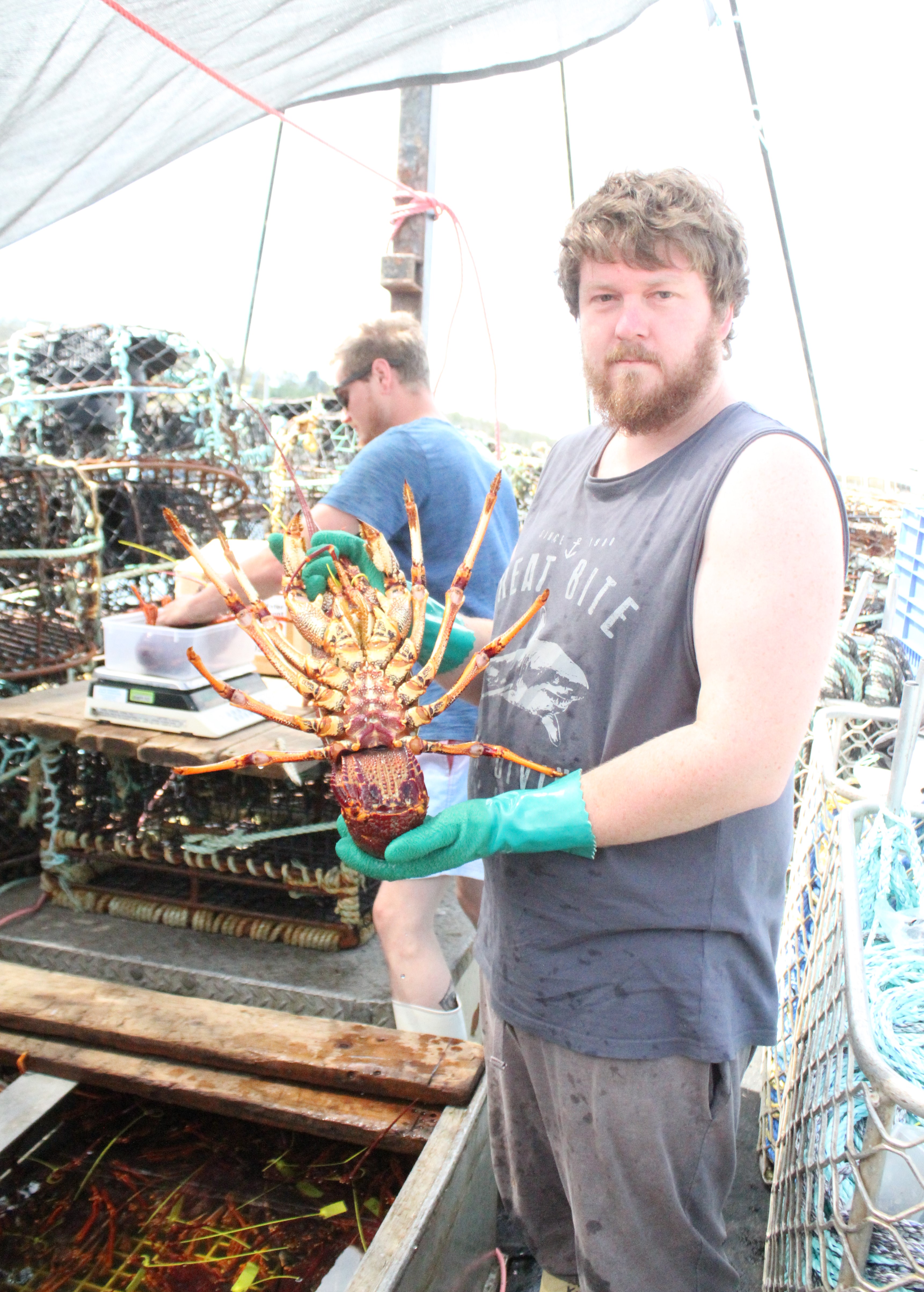Local fisherman have been left in the lurch after a halt on exports of crayfish to China during the height of the fishing season.
The Chinese market is usually quite lucrative for locals selling the crustaceans, especially during the Lunar New Year celebrations, however the outbreak of the coronavirus in the Hubei province of China has left many local fishermen attempting to sell rock lobsters dockside to the community.
Although this alternative does present an immediate solution, it also results in more costs for the supplier, making what is already a marginal profit, even slimmer.
“We’ve had to buy government certified tags for each lobster, certified scales, bags, receipt books and we’re running our pumps and generators 24/7,” said Jack Tatnall who is trying to sell his catch from the Kettering wharf.
“This is on top of our usual overheads which are already pretty high.
“Usually at this time of year we can go out and fill the boat in a week, then it’s offloaded in about an hour when we have docked.”
In sharp contrast, Mr Tatnell said it could take weeks to sell his current catch locally with no chance of catching up during the off-season, when it can take months to catch the same quantity of rock lobster.
Minister for Primary Industries and Water, Guy Barnett MP commented on Wednesday, January 29 that the State Government will be attempting to support the industry over the coming months.
“The Gutwein majority Liberal Government will enable Tasmanian rock lobster quota to be rolled over into the next year quota to support fishers impacted by local restrictions on movement in China, associated with the coronavirus outbreak.
“This means fishers who have not caught the permitted amount due to the sudden market changes will be able to add this shortfall to the amount they can catch next quota year, which starts 1 March,” said Minister Barnett.
“The Government has also approved the payment of annual fees and levies by instalment, to help relieve immediate pressure.”
Minister Barnett commented that the State Government is working closely with the Tasmanian Rock lobster Fisherman’s Association and the Tasmanian Seafood Industry Council to better understand the market impacts on local businesses and measures of support needed.
Rural Business Tasmania and Rural Alive and Well are both able to provide measures of support, including counselling to those in the industry affected by the restrictions.
Consumers are reminded that commercially caught rock lobster can be bought directly from fishers and from seafood outlets but must have a government issued tag attached and should come with a recepit.
The fishermen in the area, including Mr Tatnell’s father Kerry, have been communicating to spread themselves around different areas of southern Tasmania including, Kettering, Margate, Port Arthur and Dover with the hope of increasing sales opportunities while they await further updates on the trade situation.
Pictured: Jack Tatnell is one of many local fisherman trying to sell large catches of rock lobster dockside after the halt of exports to China in the wake of the corona virus ourbreak.
